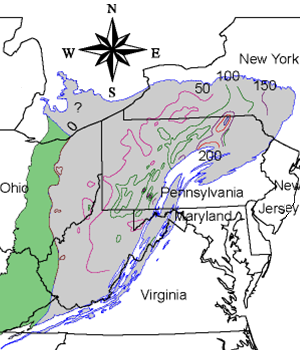Hot Air posted an article today about the draft report on hydraulic fracturing (fracking) done by the Environmental Protection Agency (EPA). The report has been five years in the making. There is, however, a problem with the report (according to the EPA). The research did not give them the answer they wanted.
This is part of the EPA’s statement regarding the report:
Science advisers to the Environmental Protection Agency Thursday challenged an already controversial government report on whether thousands of oil and gas wells that rely on hydraulic fracturing, or “fracking,” systemically pollute drinking water across the nation.
That EPA draft report, many years in the making and still not finalized, had concluded, “We did not find evidence that these mechanisms have led to widespread, systemic impacts on drinking water resources in the United States,” adding that while there had been isolated problems, those were “small compared to the number of hydraulically fractured wells.”…
But in a statement sure to prolong the already multiyear scientific debate on fracking and its influence on water, the 30-member advisory panel on Thursday concluded the agency’s report was “comprehensive but lacking in several critical areas.”
It recommended that the report be revised to include “quantitative analysis that supports its conclusion” — if, indeed, this central conclusion can be defended.
I suspect what will happen next is that the EPA will spend billions of dollars of tax payer money until they can somehow come up with a report that gives them the answer they want.
The article notes:
This board isn’t even arguing that they have evidence to the contrary. (Which would have been a neat trick since such “evidence” doesn’t appear to exist.) They simply don’t like the positive nature of the wording and would like to see even more test results than have already been submitted. They’re not saying that they have proof that fracking is dangerous… they’re just saying that the industry hasn’t proven that it isn’t.
It’s always fun to try to prove a negative.
The article concludes:
The fix was in on this pretty much from the beginning but they’ll have a hard time arguing the science. The few accidents which have happened at fracking sites speak to individual failures to follow best practices or simple human error. That’s never going to be entirely eliminated from mankind’s industrial activities, but fracking has proven itself safe and a net benefit to both the environment and the energy industry. It’s a bit late for the EPA to walk this one back now.
America needs to be energy independent, both for economic and security reasons. The EPA is not helping American achieve that goal. None of us want dirty water or dirty air, but all of us do want to be free and safe.












